Benson - Why the Grateful Dead Matter
Here you can read online Benson - Why the Grateful Dead Matter full text of the book (entire story) in english for free. Download pdf and epub, get meaning, cover and reviews about this ebook. publisher: University Press of New England, genre: Non-fiction. Description of the work, (preface) as well as reviews are available. Best literature library LitArk.com created for fans of good reading and offers a wide selection of genres:
Romance novel
Science fiction
Adventure
Detective
Science
History
Home and family
Prose
Art
Politics
Computer
Non-fiction
Religion
Business
Children
Humor
Choose a favorite category and find really read worthwhile books. Enjoy immersion in the world of imagination, feel the emotions of the characters or learn something new for yourself, make an fascinating discovery.
- Book:Why the Grateful Dead Matter
- Author:
- Publisher:University Press of New England
- Genre:
- Rating:4 / 5
- Favourites:Add to favourites
- Your mark:
- 80
- 1
- 2
- 3
- 4
- 5
Why the Grateful Dead Matter: summary, description and annotation
We offer to read an annotation, description, summary or preface (depends on what the author of the book "Why the Grateful Dead Matter" wrote himself). If you haven't found the necessary information about the book — write in the comments, we will try to find it.
What a long, strange trip its been
Why the Grateful Dead Matter — read online for free the complete book (whole text) full work
Below is the text of the book, divided by pages. System saving the place of the last page read, allows you to conveniently read the book "Why the Grateful Dead Matter" online for free, without having to search again every time where you left off. Put a bookmark, and you can go to the page where you finished reading at any time.
Font size:
Interval:
Bookmark:

Acknowledgments
I would like to thank the following individuals without whose help the writing of this book would have been impossible: Larry Beck, Ed Behringer, Tekla Benson, Jay Bianchi, Keith Brenner, Chris Carr, Anne Darrigan, my great agent Jake Elwell of Harold Ober Associates, Rick Erickson, Jen Chinacat Sunflower Fountain, Scott Frommer, Lisa Grasso, Mark Harris, editor extraordinaire Stephen P. Hull, Jake Martin of Duprees Diamond Dealer, Grateful Dead archivist Nicholas Meriwether, Nick Newlin, Gregg and Pam Praetorius, John Scher, Jay Schukoske, Carl Soloway, Spliffany, Nathan Versace, and Charlene Wrobel.
MICHAEL BENSON has published more than sixty books, wears a Steal Your Face hoodie, attended dozens of Dead shows, and still roots for the Lithuanian basketball team during the Summer Olympics. His books include Vintage Science Fiction Films, Whos Who in the JFK Assassination, Ballparks of North America, Inside Secret Societies, and Killer Twins. Benson graduated with honors from Hofstra University on Long Island, where he was for four years a rock critic for the Hofstra Chronicle. His collaborators include a biker, a spy, a pro wrestler, an astronaut, and an NFL Hall of Famer. He is currently a regular on-screen contributor to the Evil Twins and Evil Kin television programs shown on the Investigation Discovery (I.D.) Channel, and lives in Brooklyn, New York.

THEYRE AN AMERICAN BAND
The Grateful Dead were made up of misfits, many of whom hung out in the same Northern California music store. They formed a band for the usual reasons, to attract women, for something to do, but unlike most garage bandssatisfied with three chords and high-school dancesthey developed a seriousness of purpose that combined drug intake, a nerdy interest in sound technology, eclectic musical influences, a willingness to improvise, and talent, and turned it all into something resembling real ambition. Thus, they became charter members of the counterculture movements noisiest wingacid rock. They were joined by bands that, like the Dead, were weirdly named to convey their disregard for straight convention: Jefferson Airplane, Moby Grape, Quicksilver Messenger Service.
A lot of acid rock was electric folk, like the Byrds, but at a whole new freak-out level. The Dead heaped blues atop the mix, and later country, bluegrass, Americana. It was a time of strobe lights and many guitar solos. As the sixties progressed tumultuously, the movement became rich with all kinds of bands, many of whom played Monterey and Woodstock, then one by one dropped by the wayside while the Dead forged on, so many roads, pied with tie-dye and humming with love vibes.
They were American gypsies, and yet somehow the act didnt cross borders well. Perhaps customs was an issue. The Grateful Dead never built a solid fan base outside of the United States. Even in Canada, there was a disconnect.
As Bobby Weir told Benjy Eisen of Rolling Stone in 2014, We played in Mexico, but there werent any Mexicans there.
The Dead played some of their best music in Europe in 1972, but the audiences sat there and stared, not totally comprehending, their hands folded in their laps even when Bobby begged them to get up and dance. How odd it was to hear the silence when Jerry dropped the F-bomb in Wharf Rat.
No, the Dead are an American band, for American audiences the F-bomb kills every single time. They are just one of many advantages we Americans have over the rest of the world, and being a Deadhead is an act of patriotism. To find the reasons why, lets take a look at the symbols used in the bands most red, white, and blue song: U.S. Blues.
Words by longtime lyricist Robert Hunter, sung by Jerry, U.S. Blues is a rocker party song consisting largely of a list of people, places, symbols, objects, and situations to which the Dead are wedded in myth and legend. These things are, first, red, white, and blueOld Glory herself. During a time when it was fashionable to burn the flag in protest of U.S. foreign policy, the Dead preferred to cling to the traditional symbol, but with the caveat that to recognize national flaws and to seek to fix them (or just get off the ride and do your own thing) is, in itself, a new and enlightened form of patriotism. Second, Blue Suede Shoes, the rockabilly of Carl Perkins, and a song made famous by Elvis Presley. The song can be seen as a musical bridge linking Big Joe Turners shouted Kansas City blues, with the birth of rock n roll, and its assimilation into white culture. Third, Uncle Sam, a recruiting symbol for the military, now appropriated by a rock n roll band to build a new army of shaggy revelers. (As we learn during the animated portion of The Grateful Dead Movie, the new Sam is a skeleton, but he still wears the same ol hat.) Fourth, P. T. Barnum, a symbol of American show business, partly vulgar, partly a con job, always on the road, moving to a new city with the self-proclaimed Greatest Show on Earth. Fifth, Charlie Chan, a symbol of immigration, a wise old Chinese detective of the movies (although always played by a white man in heavy, racially offensive makeup), who traveled with his son, always played by an actual Asian, who spoke English with an American accent and called his father Pop. The notion that immigrants are being celebrated here is supported by the line Shake the hand that shook the hand, originally an Irish-American lyric in which the singer is bragging about the degrees of separation between himself and the first heavyweight boxing champion, the great John L. Sullivan. The chorus urges us to wave our flag wide and high, as patriotic as anything ever written by Irving Berlin or George M. Cohan. The song is happy, even joyous, which makes its title the sole touch of irony. What are the U.S. blues? Is there an undercurrent of sadness in the song? No, the closest it comes is poignant with a profound nod to the power hunger and immorality that really successful Americans (including even themselves perhaps) exhibit (Run your life / steal your wife). Maybe theres a touch of melancholy in the notion that summer is almost over, and the kids have to get back to school. But there would be other summers, and sometimes great things happened in the fall, so what the heck. According to Dennis McNally, the title is rather none of the above, but an inside joke, a jab by Hunter at Bobby. Weir and Hunter fought over the song One More Saturday Night, McNally says, because Bobby rewrote Hunters lyrics and wanted to change the title of the song to U.S. Blues. Hunter forbade it, removed his name from the songwriting credit, and wrote a new song for Jerry to sing. As it says in the song, You can call this song the United States Blues.
Before we start tugging apart art where there arent any seams, let us register the disapproval of Dead lyricist Robert Hunter, who believes that it does disservice to a lyric to dismantle symbolism, symbols more intense without a verbal explanation, layered with multiple shades of subjectivity. Its like explaining a joke until it isnt funny anymore. And I wont do a lot of it, promise, but this one is for America.

PIGPEN SANG THE BLUES
There is one fact about the Dead that startles me more than any other: Ron McKernan died at age twenty-seven. What? Twenty-seven? Not only did Pigpen look and sound older than he was, he died of an old mans disease. His liver was going and his stomach lining gave out. The amazing thing wasnt that he drank himself to death. That shit happened every day. It was how fast he did it. He died at the same age as Brian Jones, Jimi Hendrix, Janis Joplin, Jim Morrison, Kurt Cobain, and Amy Winehouse, other members of what the Internet has taken to calling The 27 Club. And he did it with booze. The band stuck with him until the end. When he was extremely ill and his liver was full of holes and his stomach was perforated, they all gave him pints of blood. Twenty-seven years old: Almost impossible to believe.
Next pageFont size:
Interval:
Bookmark:
Similar books «Why the Grateful Dead Matter»
Look at similar books to Why the Grateful Dead Matter. We have selected literature similar in name and meaning in the hope of providing readers with more options to find new, interesting, not yet read works.
Discussion, reviews of the book Why the Grateful Dead Matter and just readers' own opinions. Leave your comments, write what you think about the work, its meaning or the main characters. Specify what exactly you liked and what you didn't like, and why you think so.

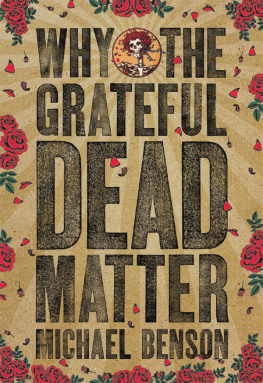

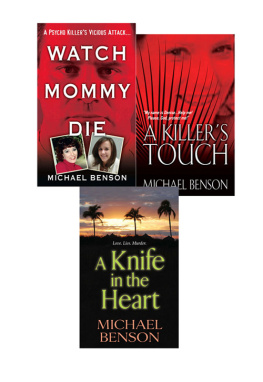
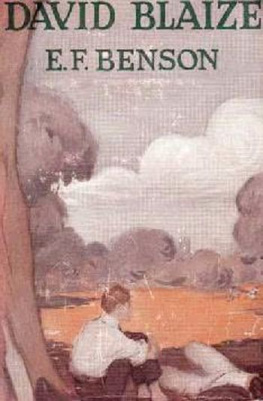
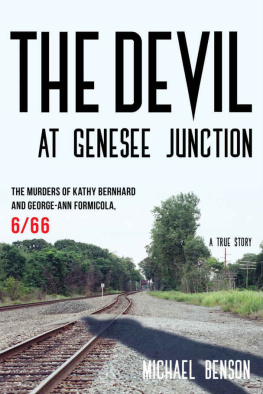
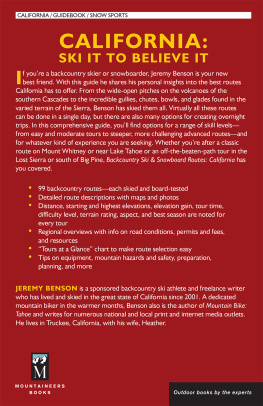

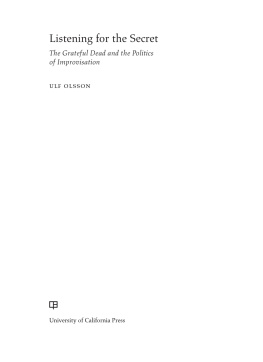

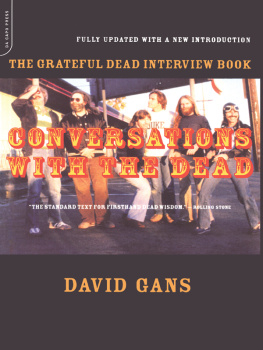
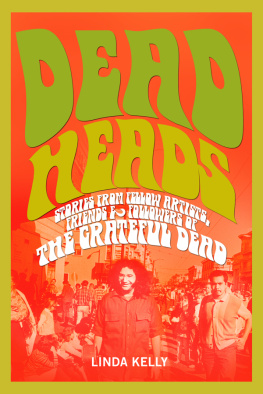
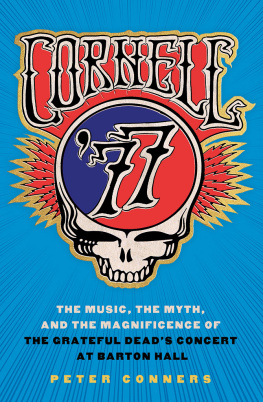
![Robert Hugh Benson [Benson - Robert Hugh Benson Collection [11 Books]](/uploads/posts/book/139831/thumbs/robert-hugh-benson-benson-robert-hugh-benson.jpg)